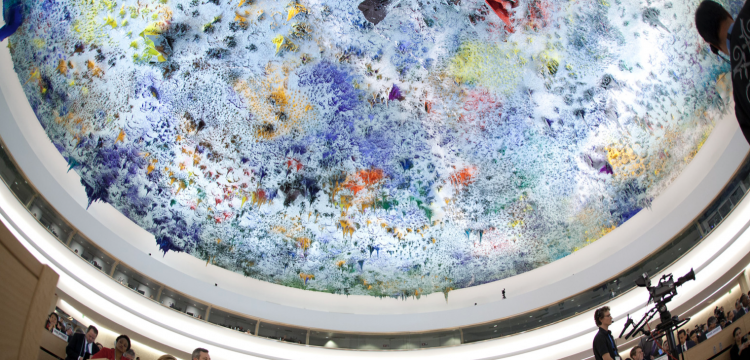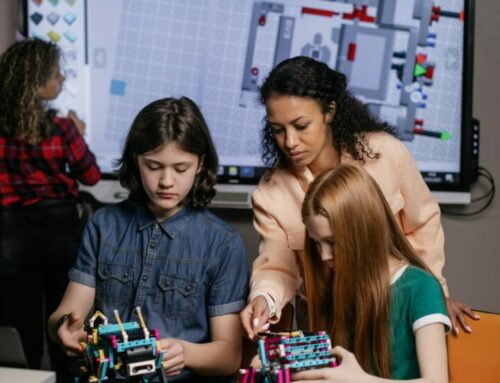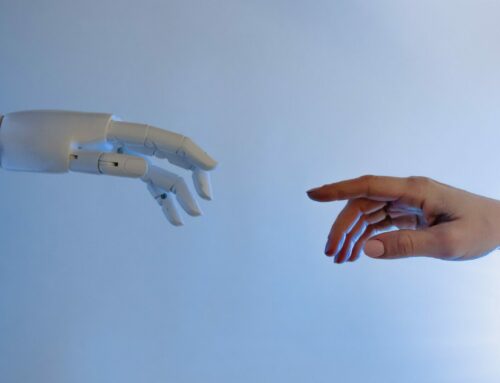New higher education literacies for a sustainable future
Patrick Blessinger, Enakshi Sengupta and Mandla Makhanya
As the world becomes more interconnected and interdependent, nations face increasing pressure to improve their political, economic, social, technological and environmental infrastructures in order to compete in an increasingly globalised world.
Within this context, perhaps the most fundamental and important component of any nation in the 21st century is its educational system. As societies become more complex – economically, socially, technologically and otherwise – so must their educational systems.
To this end, nations have responded by creating diverse educational systems that now consist of many different types of educational institutions, including trade schools, technical colleges, community colleges, liberal arts colleges and research universities, among others.
In a complex society, a one-size-fits-all approach is unable to address all the varied needs of society. Therefore, a highly diverse educational system is seen by many as one of the keys to the promotion of economic growth and social development.
Creating a smarter and higher quality educational system
However, institutional diversity alone will not address all the problems facing societies around the world. Regardless of the type of institution, new literacies are also needed to address not just the economic demands of society but also the growing complexity of global problems facing the world.
Thus, we must now move from a diverse educational system to a more inclusive and equitable educational system based on democratic and rights-based principles, which is illustrated by the following rights-based educational model.
By moving towards an educational system based on democratic and rights-based principles, societies are more likely to address the complex and wide-scale problems facing the planet, such as global climate change, sustainable development, democratic reforms and universal rights (human, animal and environmental rights).
This approach to education provides a roadmap to help secure a universal right to education at all levels that is inclusive and equitable.
New literacies for the 21st century
As depicted in the rights-based educational model, the ultimate goal is to achieve an inclusive and equitable education system that prepares all people to succeed in the 21st century.
In addition to increasing globalisation, today’s societies are also in the midst of transitioning from a carbon-based economy to a green economy which has huge implications for how students are educated and how societies function.
This transition has become necessary due to global warming, deforestation and desertification, among other factors, which, in turn, have huge impacts on delicate interconnected ecosystems, food chains and overall quality of life.
In addition, new demands for food, water, sanitation and other basic living requirements, brought about by rapid growth in urbanisation and the world’s population, require not only innovative technological solutions but also a new humanistic paradigm and way of thinking that address these problems on a global scale.
Thus, educational institutions must implement new teaching and learning approaches, which are all inter-related and inter-dependent, to more effectively deal with these changes:
- Inquiry-based learning (problem-based and research-based learning).
- Creative learning (experiential and product-based learning).
- Meaningful learning (relevant and holistic learning).
- Humanistic learning (inclusive and equity-based learning).
Moving beyond basic literacy and numeracy
Traditionally, educational systems have mainly focused on literacy (reading and writing) and numeracy (mathematics and quantitative reasoning) as the main focus of educating students.
In other words, traditionally, teaching and learning has been focused mainly on the consumption of existing knowledge and skills, which is depicted as levels one and two of Bloom’s Taxonomy of Educational Objectives.
Of course, the consumption of existing knowledge and skills is extremely important and necessary because it lays the foundation for higher order learning, but foundational knowledge is, nonetheless, only the start of learning.
The problem with focusing exclusively on building lower order thinking is that, in the modern era, the shelf-life of existing knowledge and skills has become shorter and the impact of increasingly complex problems facing societies requires new ways to solve these problems – ways that focus on the production of original knowledge and the skills needed to solve these problems.
Educational institutions should therefore be focused on cultivating higher order thinking. Existing knowledge and skills have very limited value unless they can be applied in novel ways to produce new knowledge that solves complex and large-scale problems to improve the quality of life for all people.
Developing new literacies of the future
In today’s fast-changing society, most people are likely to change jobs and careers several times throughout their lives. So, students need to be exposed to a rigorous set of learning experiences that allows them to develop the habits, values and higher order thinking skills to make them better able to succeed and adapt in the modern era.
While language and maths literacy are foundational, the modern era requires new forms of learning that cultivate the competencies required to function and succeed in a more complex and rapidly changing environment. Chief among these new literacies are problem-solving and metacognitive literacies, critical and creative thinking literacies and meaningful and humanistic literacies, which the rights-based educational model is intended to address.
For instance, two forms of inquiry-based learning are problem-based learning and research-based learning, which are now widely used at many colleges and universities.
These approaches to education are designed to develop higher order thinking skills (that is, applying, analysing, evaluating and creating original knowledge or products). Thus, it is in the production of original scholarly work that the true value of education is realised.
Education for the 21st century
While education alone is not a panacea for all the world’s problems, it does offer humanity the best chance for solving many of the problems humanity faces and for helping to lift people out of poverty and despair. For instance, embedding sustainable development into the curriculum and into the teaching-learning process will become one of the top aims for educational institutions.
The world is rapidly changing and educational institutions must change with it. Therefore, we must focus on transforming the entire learning ecosystem in such a way that promotes new literacies in support of the United Nations Sustainable Development Goals.
Patrick Blessinger is an adjunct associate professor of education at St John’s University, New York City, United States, and chief research scientist for the International Higher Education Teaching and Learning Association or HETL. Enakshi Sengupta is director of the Center for Advanced Research in Education at HETL. Mandla Makhanya is principal, vice-chancellor and professor at the University of South Africa and president of HETL. HETL explores the issues raised in this article in its series, Innovations in Higher Education Teaching and Learning.
Suggested Citation:
Blessinger, P., Sengupta, E., and Makhanya, M. (2019). New higher education literacies for a sustainable future, University World News,
https://www.universityworldnews.com/post.php?story=20191017120317521
Or
Blessinger, P., Sengupta, E., and Makhanya, M. (2019). New higher education literacies for a sustainable future, Higher Education Tomorrow, Volume 6, Article 6,
https://www.patrickblessinger.com/new-higher-education-literacies-for-a-sustainable-future/
Copyright © [2019] Patrick Blessinger, Enakshi Sengupta, and Mandla Makhanya
Disclaimer
Opinions expressed in this article are those of the author, and as such do not necessarily represent the position(s) of other professionals or any institution.




